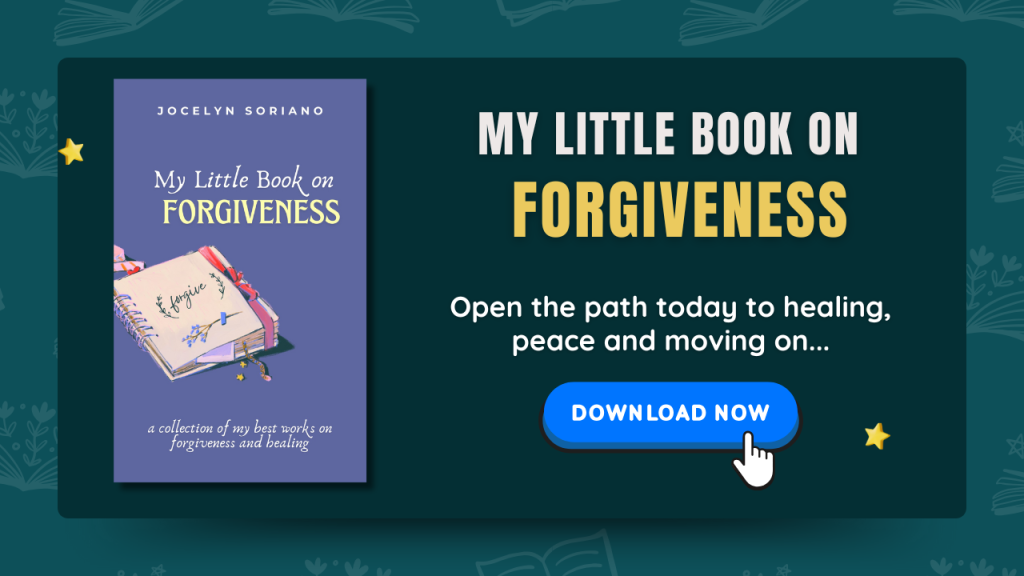
After experiencing the negative effects of anger, many people may decide to never get angry at all. At first glance, this seems to be the wisest choice. After all, isn’t anger one of those emotions that wreak havoc in our relationships? Anger often makes us say things we’d only regret later on. Sometimes, even though we have already explained that we didn’t mean what we said, the damage and hurt it caused remain.
However, is setting aside anger forever without any negative consequences as well? Would we live happily ever after if we could only refrain from being angry?
Both psychology and experience can tell us that avoiding anger altogether is not without its side effects.
The following are just some of the possible results we may encounter if we try to suppress anger:
1. Bitterness resulting in passive-aggressive behavior
Anger not addressed properly can simply turn into an unspoken feeling of resentment or bitterness. Although we may not recognize the anger, our ill feelings can manifest in other ways, such as words of sarcasm or avoidant behavior.
2. Explosive outbursts
Some people who try to suppress anger for a long time may suddenly have outbursts of anger that can shock the people around them. It may even come at a time when there is only a minor offense that does not deserve the explosive outburst.
3. Feelings of depression
If one makes it a habit to simply ignore one’s feelings and detach from them, one may experience an eventual numbness from emotion or even depression.
4. Becoming a victim of abuse due to a lack of boundaries
Anger sometimes warns us that a boundary has been crossed or needs to be set. If we merely shrug off this emotion without trying to understand what it is trying to say, we may become victims of people or circumstances that continue to transgress our boundaries.
What Do We Do With Anger?
Learning the consequences of repressed anger does not mean that we can justify anger in every situation. What this means is that we must find healthy ways of dealing with it.
We can begin by recognizing the proper role of anger in our lives. Remember that anger can help us realize those times when we may experience injustice, harm or an issue that needs to be addressed.
The next thing we must keep in mind is that we need not let anger make us do or say things we’d only regret. It is very important that we give ourselves time to pause instead of reacting instantly whenever we feel angry.
To summarize, here are the three important things we can do to manage anger in a healthy way:
1. Pause
Don’t give in immediately to your anger. Give yourself time to process your anger.
2. Pray
Ask for God’s guidance and wisdom so that you may know the best course of action to take.
3. Act wisely
After weighing the consequences of your actions, choose the best way to address your anger. If you need more time, you can talk to a person you can trust. You can also try journaling as an outlet instead of suppressing your emotions until they explode.
Ask yourself:
a. What boundaries do I need to set so I can avoid being angry over and over again?
b. Are there wounds that I need to heal?
c. How do I protect myself and my loved ones without letting anger overpower me?
What The Bible Says About Anger
The Bible is filled with practical advice about anger. It tells us that it is very dangerous to let anger control us. However, St. Paul also says that being angry in itself is not a sin. It is what we do with this anger that will define the holiness of our actions.
“Whoever is slow to anger has great understanding,
but one who has a hasty temper exalts folly.”
– Proverbs 14:29 (NRSVCE)
“Be angry but do not sin; do not let the sun set on your anger, and do not leave room for the devil… No foul language should come out of your mouths, but only such as is good for needed edification, that it may impart grace to those who hear.” – Ephesians 4:26-27, 29 NABRE
You may also want to read “Why Forgiving Others Feels So Hard—And How to Start.”
Jocelyn Soriano is the author of “My Little Book on Forgiveness.”













